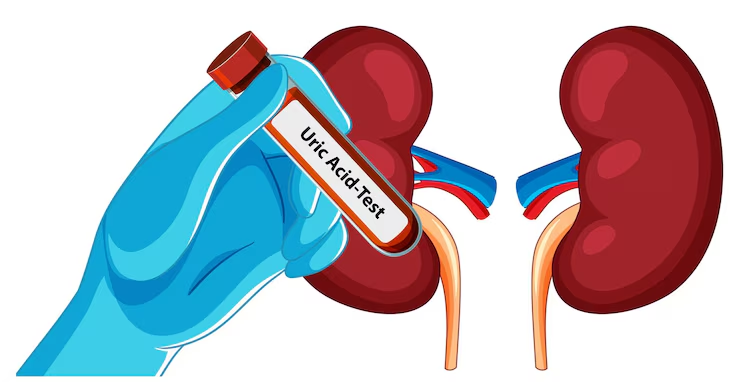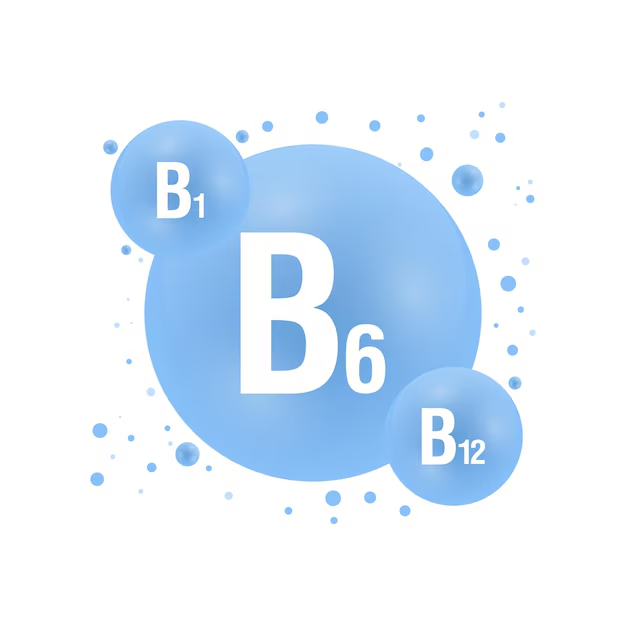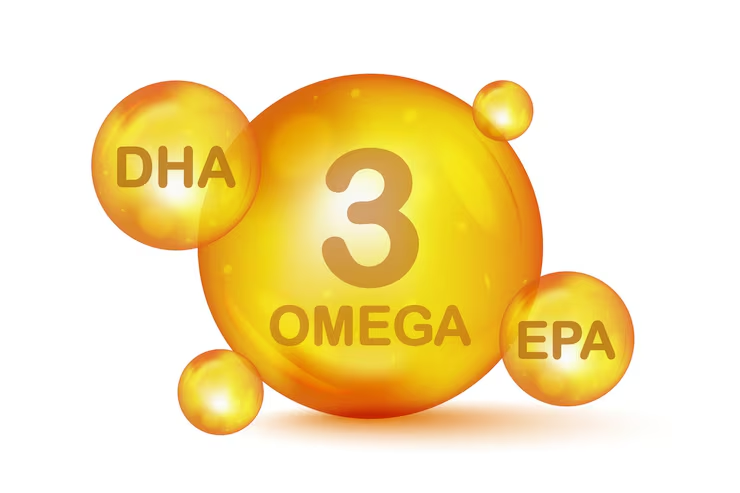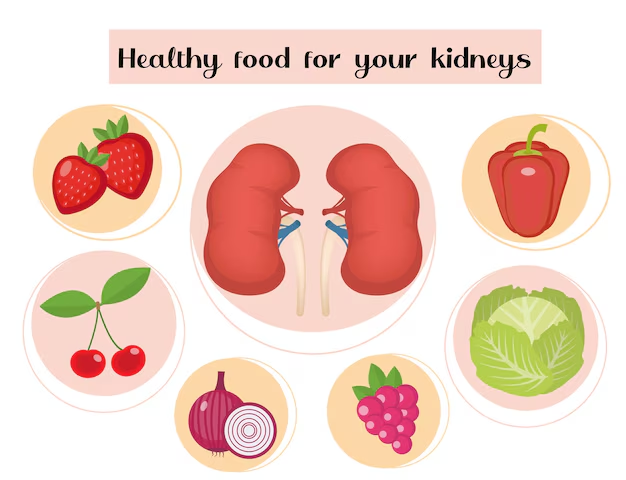The kidneys are vital organs responsible for maintaining the body’s internal balance. They filter waste, excess fluids, and toxins from the blood while also regulating blood pressure and producing essential hormones. Because of these critical roles, supporting kidney function is a key part of overall wellness. Taking steps to protect your kidneys can help prevent serious health complications in the long run.
Several factors can affect kidney health, including diet, hydration, lifestyle choices, and genetics. One important way to support your kidneys is by including vitamins for good kidney health in your daily routine. These vitamins can nourish the kidneys, improve filtration, and help balance electrolytes effectively.
Specific vitamins for good kidney health can also reduce inflammation and strengthen the immune system, lowering the risk of kidney disease and related complications. Ensuring that your diet or supplements contain these essential nutrients can help your kidneys function optimally every day.

What Are Kidneys and How Do They Work ?
Kidneys are bean-shaped organs located on either side of your spine, just below the rib cage. Each kidney is about the size of a fist but carries out incredibly complex tasks.
Functions of Kidneys:
Filtration of Blood: Kidneys filter about 50 gallons of blood daily, removing waste and excess substances, which are then excreted as urine.
Electrolyte Balance: They maintain levels of key electrolytes like sodium, potassium, and calcium.
Acid-Base Balance: Kidneys regulate the body’s pH to maintain a healthy acid-base balance.
Blood Pressure Regulation: They produce renin, a hormone that helps control blood pressure.
Red Blood Cell Production: Kidneys produce erythropoietin, which stimulates red blood cell production.
Vitamin D Activation: Kidneys convert inactive vitamin D into its active form, crucial for calcium absorption and bone health.
Because kidneys handle so many essential tasks, damage or dysfunction can cause severe health problems. Chronic kidney disease (CKD) and acute kidney injury are serious conditions often influenced by diet, lifestyle, and nutrient intake.
Why Vitamins Are Important for Kidney Health ?
Vitamins and minerals support various physiological processes within the kidneys and throughout the body:
Antioxidant Protection: Vitamins like C and E combat oxidative stress, which damages kidney cells.
Immune Support: Vitamins A, C, D, and zinc boost immune function, reducing infections that can harm kidneys.
Blood Pressure Control: B vitamins and magnesium help regulate blood pressure, a key factor in kidney health.
Electrolyte Balance: Vitamins aid in maintaining the correct balance of electrolytes vital for kidney function.
Preventing Complications: Vitamins reduce inflammation, prevent anemia, and support bone health in those with kidney problems.
However, vitamin intake must be carefully balanced. Some vitamins, especially fat-soluble ones like A and D, can accumulate and become toxic if taken in excess, particularly in people with kidney impairment. Therefore, understanding the right vitamins, their doses, and sources is critical.
When and How Should You Take Vitamins for Kidney Health ?
When to Take: Taking vitamins at the right time is essential to maximize their benefits, especially when it comes to supporting kidney function. The best time to take vitamins for good kidney health often depends on the type of vitamin. For instance, fat-soluble vitamins like A, D, and E are best absorbed with meals containing healthy fats, while water-soluble ones like B-complex and C can be taken with water throughout the day.
If you’re at risk for kidney problems or already have reduced kidney function, incorporating vitamins for good kidney health should be part of your daily routine—ideally under medical supervision. Early use of the right vitamins can help slow down damage and support overall kidney performance.
Always consult a healthcare provider before starting supplements. They can help tailor the dosage and timing to your specific needs, ensuring you’re getting the most from your vitamins for good kidney health without overburdening your kidneys.
How to Take: Getting vitamins for good kidney health through a balanced diet is the most natural and beneficial approach. Whole foods like fruits, vegetables, nuts, seeds, and fish are rich in essential vitamins, minerals, antioxidants, and fiber that support overall kidney function while promoting other aspects of health.
While supplements can help fill nutritional gaps, they should be used with caution. Not all supplements are safe for individuals with kidney issues, as some may contain high doses or added ingredients that stress the kidneys. It’s important to choose high-quality, kidney-friendly options.
Before starting any supplement regimen, always consult a healthcare provider. They can recommend the right dosage and type based on your specific needs and medical condition. Combining smart supplementation with a nutrient-rich diet ensures you’re getting vitamins for good kidney health safely and effectively—supporting your kidneys without overwhelming them.
Top Vitamins for Good Kidney Health
Vitamin D

Vitamin D plays a vital role in maintaining healthy kidneys and overall bodily function. It helps regulate calcium and phosphorus levels in the blood, which are crucial for bone health and proper muscle function. More importantly, vitamin D supports the kidneys in maintaining these mineral balances, reducing the strain on these essential organs.
For individuals at risk of kidney disease or with compromised kidney function, maintaining adequate vitamin D levels is particularly important. Low levels can lead to bone disorders and worsen kidney issues. Since the kidneys convert vitamin D into its active form, any dysfunction can limit this conversion—making supplementation a helpful strategy in some cases.
Incorporating vitamins for good kidney health, such as vitamin D, into your wellness routine can improve kidney efficiency and support overall well-being. Whether through safe sun exposure, diet, or supplements, getting enough vitamin D can help protect and nourish your kidneys for the long term.
Why: Kidneys activate vitamin D, which helps regulate calcium and phosphorus balance, essential for healthy bones and preventing kidney-related bone disease.
Benefits:
Supports calcium absorption and bone strength
Regulates immune function and inflammation
Reduces proteinuria (protein loss in urine) in kidney disease
Ingredients & Sources:
Sun exposure (skin synthesis)
Fatty fish (salmon, mackerel)
Fortified dairy products
Egg yolks
Supplements (vitamin D3 or calcitriol under supervision)
Vitamin B Complex (B6, B12, Folate)

Vitamin B Complex (B6, B12, Folate) plays a vital role in supporting kidney function and overall health. These essential B vitamins help convert food into energy, support red blood cell production, and reduce levels of homocysteine—a compound linked to kidney damage when elevated.
Vitamin B6 supports protein metabolism, which is crucial since excess protein waste is filtered by the kidneys. Vitamin B12 helps prevent anemia, a common complication of kidney disease, by aiding in red blood cell production. Folate (vitamin B9) works closely with B12 to support DNA synthesis and cellular repair, reducing oxidative stress on kidney tissues.
Incorporating vitamins for good kidney health, like the B complex, into your daily routine can offer protective benefits. These vitamins are especially important for individuals with chronic kidney conditions or those at risk. A balanced diet or supplementation, under medical guidance, can ensure your kidneys stay nourished and better able to perform their detoxifying roles.
Why: These vitamins help reduce homocysteine levels, an amino acid linked to cardiovascular problems and kidney disease progression.
Benefits:
Lowers homocysteine, reducing cardiovascular risks
Supports red blood cell production, preventing anemia common in CKD
Maintains nerve function and energy metabolism
Ingredients & Sources:
Whole grains (brown rice, oats)
Meat, poultry, and fish
Leafy green vegetables
Eggs and dairy
Legumes and nuts
Vitamin C
Vitamin C is a powerful antioxidant that plays an important role in maintaining strong immunity and supporting tissue repair throughout the body. For the kidneys, it helps neutralize free radicals and reduce inflammation—both of which can contribute to chronic kidney issues over time.
As one of the essential vitamins for good kidney health, Vitamin C supports the body’s ability to fight infections, including urinary tract infections (UTIs), which can impact kidney function if left untreated. It also assists in collagen production, helping maintain the integrity of blood vessels that supply the kidneys.
However, it’s important to consume Vitamin C in moderate amounts, especially for individuals with kidney disease, since excessive doses can lead to oxalate buildup and increase the risk of kidney stones. Getting this vitamin from natural sources like oranges, berries, and bell peppers—or from supplements under medical guidance—can help protect your kidneys while promoting overall health and vitality.
Why: Vitamin C is a powerful antioxidant that reduces oxidative stress and inflammation, protecting kidney cells from damage.
Benefits:
Boosts immune system to prevent infections
Reduces oxidative damage and inflammation
Supports collagen formation for tissue repair
Ingredients & Sources:
Citrus fruits (oranges, lemons)
Berries, kiwi, and papaya
Bell peppers and tomatoes
Broccoli and spinach
Note: Excessive vitamin C in kidney disease patients can increase oxalate levels and should be monitored.
Vitamin E
Vitamin E is a fat-soluble antioxidant known for its role in protecting cells from oxidative damage. This makes it particularly beneficial for kidney health, as the kidneys are vulnerable to damage from free radicals and inflammation. By neutralizing these harmful compounds, Vitamin E helps preserve kidney tissues and supports their function.
As one of the essential vitamins for good kidney health, Vitamin E contributes to improved blood circulation, reduced inflammation, and enhanced immune response—all of which are important in maintaining healthy kidneys. It may also help slow the progression of chronic kidney disease (CKD) by minimizing oxidative stress and protecting the glomeruli, the filtering units within the kidneys.
Natural sources of Vitamin E include almonds, sunflower seeds, spinach, and avocados. While supplementation can be helpful, it should be taken cautiously and under professional guidance, especially for individuals with kidney conditions. A balanced intake can provide long-term support for kidney health and overall well-being.
Why: Acts as a potent antioxidant protecting kidney tissues from oxidative damage and improving overall kidney function.
Benefits:
Prevents oxidative stress-related cell damage
Enhances immune response
May improve kidney function in early CKD
Ingredients & Sources:
Nuts and seeds (almonds, sunflower seeds)
Spinach and broccoli
Vegetable oils (sunflower, safflower)
Fortified cereals
Magnesium
Magnesium is an essential mineral that plays a key role in over 300 biochemical reactions in the body, including those related to nerve function, muscle health, and blood pressure regulation. It’s particularly important for maintaining electrolyte balance, which directly impacts kidney function. Adequate magnesium levels help the kidneys manage calcium and reduce the risk of kidney stones.
As one of the vital vitamins for good kidney health, magnesium supports detoxification processes and prevents the buildup of harmful substances in the kidneys. It also helps reduce inflammation and oxidative stress, both of which are linked to chronic kidney disease (CKD). Low magnesium levels have been associated with a higher risk of kidney-related complications and cardiovascular issues in CKD patients.
Good dietary sources of magnesium include leafy greens, legumes, nuts, seeds, and whole grains. While supplements are available, it’s important to consult a healthcare provider before starting magnesium supplementation, especially with compromised kidney function.
Why: Magnesium regulates blood pressure, glucose metabolism, and prevents calcification in kidneys.
Benefits:
Controls blood pressure, reducing kidney stress
Supports muscle and nerve function
Prevents kidney stone formation
Ingredients & Sources:
Nuts and seeds (pumpkin seeds, almonds)
Whole grains (brown rice, quinoa)
Leafy greens (spinach, kale)
Legumes and beans
Zinc
Zinc is an essential trace mineral that supports immune function, wound healing, and antioxidant defense—all of which are critical for maintaining kidney health. It also helps the body combat oxidative stress and inflammation, two major contributors to chronic kidney disease (CKD) progression.
As one of the important vitamins for good kidney health, zinc plays a protective role in preserving kidney tissue and function. Research shows that adequate zinc levels may slow the decline of kidney function in individuals with CKD. Zinc also supports enzyme activity involved in detoxification, helping the kidneys remove harmful substances more efficiently.
You can find zinc naturally in foods such as pumpkin seeds, legumes, nuts, whole grains, and seafood like oysters and shrimp. However, excessive zinc intake can interfere with the absorption of other essential minerals, so balance is key. Individuals with kidney disease should talk to their healthcare provider before adding zinc supplements to their routine.
Why: Zinc is vital for immune function and cell repair, and low levels are common in kidney disease.
Benefits:
Enhances immune defense against infections
Supports wound healing and cell regeneration
May reduce inflammation and oxidative damage
Ingredients & Sources:
Meat, shellfish, and poultry
Legumes and seeds
Nuts and whole grains
Omega-3 Fatty Acids (Not a vitamin but essential nutrient)

Omega-3 fatty acids, while not classified as vitamins, are essential nutrients that offer powerful benefits for kidney function. Known for their anti-inflammatory properties, omega-3s help reduce inflammation in the kidneys and lower the risk of chronic kidney disease progression.
Though technically not part of the vitamin group, omega-3s complement the role of vitamins for good kidney health by supporting cardiovascular health and regulating blood pressure—two factors closely tied to kidney wellness. They may also help decrease proteinuria (excess protein in urine), a common sign of kidney damage.
Found in fatty fish like salmon, mackerel, and sardines, as well as in flaxseeds and walnuts, omega-3s can be consumed through diet or high-quality supplements. Regular intake of omega-3s, along with kidney-friendly vitamins like B-complex and vitamin D, creates a comprehensive nutritional approach to protect and preserve kidney function naturally and effectively. Always consult your doctor before starting new supplements.
Why: Omega-3 fatty acids reduce inflammation, lower blood pressure, and protect kidney cells.
Benefits:
Anti-inflammatory properties
Reduces proteinuria and progression of kidney disease
Supports heart and vascular health, lowering cardiovascular risks
Ingredients & Sources:
Fatty fish (salmon, sardines, mackerel)
Flaxseeds and chia seeds
Walnuts and hemp seeds
Fish oil supplements
Vitamin A
Vitamin A plays a key role in maintaining immune function, vision, and cellular health—and it can also contribute to kidney wellness when consumed in proper amounts. This fat-soluble vitamin helps regulate cell growth and repair, which is essential for keeping kidney tissues healthy and resilient.
In the context of vitamins for good kidney health, vitamin A supports the body’s defense system, helping prevent infections that may burden the kidneys. It also assists in maintaining the integrity of epithelial tissues, including those lining the urinary tract, which is crucial for effective waste filtration and toxin removal.
However, vitamin A must be taken with caution, especially for individuals with chronic kidney conditions. Excessive intake can be toxic and may worsen kidney damage. It’s best to get vitamin A from food sources such as carrots, sweet potatoes, and leafy greens, and only take supplements under medical supervision. Balanced intake is key to reaping its full kidney-supportive benefits.
Why: Supports immune health and cellular repair, but needs caution in kidney disease due to risk of toxicity.
Benefits:
Promotes healthy vision and skin
Supports immune response
Helps with tissue repair
Ingredients & Sources:
Liver (in moderation)
Carrots, sweet potatoes, and pumpkins (beta-carotene)
Leafy greens and eggs
Note: Avoid excessive vitamin A supplementation if kidney function is impaired.
Additional Tips for Maintaining Kidney Health with Vitamins
Balanced Diet: Incorporate a kidney-friendly diet rich in fruits, vegetables, lean protein, and whole grains.
Hydration: Drink plenty of water to help kidneys flush out toxins.
Avoid Excess: Do not self-medicate with high-dose supplements without medical guidance.
Regular Checkups: Monitor kidney function and nutrient levels regularly, especially if you have chronic kidney disease or risk factors.
Limit Sodium and Processed Foods: Excess salt can harm kidneys and increase blood pressure.
Exercise: Stay physically active to support overall health and reduce kidney disease risk.
Quit Smoking: Smoking harms blood vessels and accelerates kidney damage.
Manage Blood Sugar: Control diabetes effectively to prevent diabetic nephropathy.
Conclusion

Kidneys play a vital role in maintaining the body’s internal balance by filtering waste, regulating fluids, and supporting hormone production. To keep them functioning optimally, it’s important to support them with essential vitamins for good kidney health. These nutrients help minimize oxidative stress, manage blood pressure, and strengthen immune defenses.
Key vitamins for good kidney health include vitamin D, the B-complex group (especially B6, B12, and folate), vitamin C, vitamin E, magnesium, zinc, omega-3 fatty acids, and vitamin A. These vitamins can be sourced from whole foods or taken as supplements when advised by a healthcare professional. They offer protective and restorative benefits for kidney cells and overall metabolic balance.
While vitamins are beneficial, maintaining kidney health requires a well-rounded approach. This includes proper hydration, a kidney-friendly diet, regular exercise, and avoiding harmful substances. Always consult a medical professional before starting any supplements to ensure safety and effectiveness tailored to your individual needs.
FAQs
Q1. What are the best vitamins for good kidney health ?
The most beneficial vitamins for good kidney health include Vitamin D, B-complex vitamins (especially B6, B12, and folate), Vitamin C, Vitamin E, and Vitamin A. Minerals like magnesium and zinc, along with omega-3 fatty acids, also support kidney function.
Q2. Can taking vitamins improve kidney function ?
Yes, certain vitamins for good kidney health can support kidney function by reducing inflammation, managing oxidative stress, and supporting immune health. However, they are not a cure and should be used under medical guidance.
Q3. Are vitamin supplements safe for people with kidney disease ?
Not all supplements are safe. People with kidney disease should consult their doctor before taking vitamins for good kidney health, as some may accumulate and cause harm.
Q4. Can a healthy diet provide enough vitamins for kidney health ?
Yes, a balanced diet rich in fruits, vegetables, whole grains, and healthy fats can provide many essential vitamins for good kidney health.
Q5. Is Vitamin D important for kidney health ?
Absolutely. Vitamin D plays a critical role in calcium balance, bone health, and immune function, making it one of the top vitamins for good kidney health.



